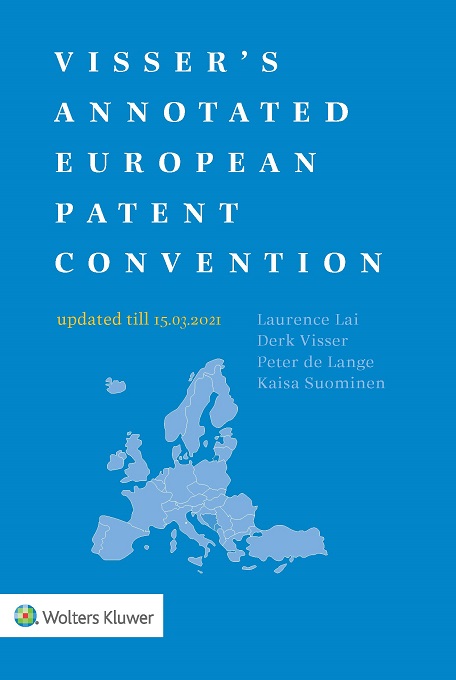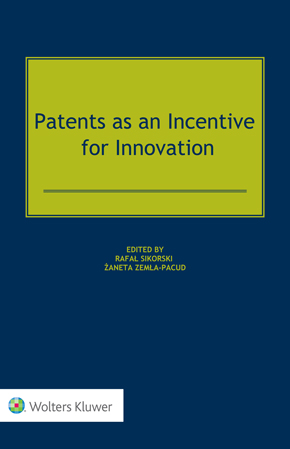A reminder of the good old days, when many things were still normal…
I. Nemo Iudex
Once upon a time, the “nemo iudex” principle was a fundamental cornerstone of EPO Board Appeal proceedings, even though EPO management did not always appreciate it (do you still remember R 19/12?). The principle reads in full:
Nemo Iudex in Sua Causa
This Latin phrase means literally, that no-one should be judge in his own cause. According to wikipedia, It is a principle of natural justice that no person can judge a case in which they have an interest. In many jurisdictions the rule is very strictly applied to any appearance of a possible bias, even if there is actually none: “Justice must not only be done, but must be seen to be done”.
Wikipedia credits this phrase to Sir Edward Coke who lived in the seventeenth century, but concedes that this phrase is actually attested as early as 1544. I can easily top this: Even the ancient Romans knew the very same principle at least since the Codex Iustitianus of 528 AD. When the present times are depressing, a deeper dive into history can be both enlightening and refreshing. So let’s go ad fontes and look up what DOMINI NOSTRI SACRATISSIMI PRINCIPIS IUSTINIANI CODEX had to say about this matter. We find it here as admonition no. 3.5.0
Ne quis in sua causa iudicet vel sibi ius dicat.
Translated literally, this means that “nobody should judge in his own case or speak right about himself”.
With this in mind, let us turn to Art. 15a RPBA and G 1/21. The history of this new Article has been summarized in part on the EPO’s website thus:
Article 15a RPBA was approved by the Administrative Council of the European Patent Organisation at its 166th meeting on 23 March 2021. It had previously been adopted by the Boards of Appeal Committee (BOAC) on 11 December 2020. The BOAC, which is composed of three members of the delegations of the contracting states and three serving or former judges of national courts of the contracting states (see Article 2(1) CA/D 7/16), consulted users before adopting the new provision, and plans to consult them again in due course to assess their experience with it.
I will not further bore readers with my views on the seriousness of this “user consultation” and turn straight to the question how the BOAC came to adopt Art. 15a RPBA in the first place. This can be taken from document BOAC 16/20, the summary of which reads as follows:
The President of the Boards of Appeal proposes that the Boards of Appeal Committee adopts the amendment to the Rules of Procedure of the Boards of Appeal set out in Part II of this document. The amendment involves inserting in the Rules of Procedure of the Boards of Appeal (RPBA 2020) new Article 15a, which clarifies that the Boards of Appeal may hold oral proceedings pursuant to Article 116 EPC by videoconference.
Thus, the President of the Boards of Appeal, Mr. Josefsson, proposed the introduction of Art. 15a RPBA to the Board of Appeals Committee, which adopted it and proposed it to the Administrative Council who in turn approved it. The Enlarged Board in G 1/21 is now being called upon to judge the legality of Art. 15a RPBA to the extent that oral proceedings are scheduled without the consent of the parties to the proceedings. Now I have two simple questions:
(1) Who would be the last person that the Codex Iustitianus would like to see on the bench to adjudge this question? (2) Which (disciplinary) authority should the majority of the members of the Enlarged Board of Appeal better not be subjected to when it comes to their re-appointment after their 5 year term?
Once you have answered these questions, you may start getting a bit concerned about the EPO’s apparent “New Normal”. Always remember that justice must not only be done, but seen to be done.
II. Rights of Parties are Sacrosanct
The EPO’s old normal, at least as far as I can remember, was to respect the fact that the EPO is exclusively financed by user fees. Users’ rights and needs have therefore always had a high priority in EPO’s management decisions. I cannot remember a single case where the EPO tried to push through an amendment that was both explicitly designed to limit a user’s right and was severely objected by a large majority of both applicants from industry and supranational organizations of representatives. Some companies are very vocal about it, and I think for very good reasons. You can read a good summary in this interview with Dr. Jörg Thomaier, Head of IP of Bayer. If you have not yet seen it, I recommend reading it in full. Here is just a teaser:
Bayer is being very vocal against the compulsory part of it, because we don’t see there being any power from the authorities to force everyone into video conferencing. We have the right to be heard, according to the European Patent Convention, and the right to be heard does not mean just calling in. Of course, on one level video conferencing is more than just being on the phone. But it’s still not the same as having a live discussion.
Bayer (and many others of the 47 amici curiae in G 1/21) are not against video proceedings in general and would agree to hybrid proceedings in case that one party does not want to travel to Munich (or the Hague), but they are of the firm view that Art. 15a in its present interpretation would deprive them from an important right, i.e. personal participation in oral proceedings.
Even if the Enlarged Board were to find video proceedings without the consent of the parties compliant with Art 116 EPC, I seriously wonder whether the EPO would be well-advised to actually make such proceedings the ‘new normal’ after the current pandemic. The Boards and Opposition/Examining Divisions do not have to arrange for video proceedings, they still have the authority to go for classic oral proceedings in person. In my opinion, an emergency situation such as the present pandemic should never be (ab)used to enact provisions enabling the state or a state-like organization such as the EPO to take away people’s rights, once the emergency has ended. Maybe I, as a German, am (and better should be) particularly sensitive if I feel that such attempts are being made.
III. Act with Prudence
The EPO has always changed over the years and it will continue changing in the future. There is nothing wrong with this in principle. Yet, I get the distinct feeling that the ‘new normal’ currently advocated by the EPO management (though in very cloudy, ambiguous terms) runs the risk of turning the EPO completely inside out. I think we should all be very wary of this risk and reject changes that are introduced too hastily and without a proper and prudent look at the consequences. As this contribution is a little Latin-heavy anyway, let me add that this is of course not a new idea; I borrowed it from the medieval Gesta Romanorum:
Quidquid agis, prudenter agas et respice finem.
Whatever you do, act prudently and mind the end. This wisdom goes back even to Aesop and Pythagorean philosophy.
With this mindset, I stumbled about an interesting contribution by two previous EPO Vice Presidents, Jacques Michel and Willy Minnoye, here. This blogpost contained many thoughts that I found worthy of careful deliberation. As the original is in French, I am happy to provide an English translation under the following link:
Contribution J Michel & W Minnoye New Normal EPO English translation
I particularly liked the authors’ emphasis on quality by cooperation and discussion among examiners, both during their education period and thereafter. It seems plausible to me that thorough discussion of a case by the three examiners of an examination or opposition division is one of the best means to secure and enhance what I understand to be “quality”. Clearly, such discussions take time, but I would think this is time well spent. And I am quite skeptical that the EPO will be able to secure the same quality once such discussions are supposed to mostly take place by videoconference. I hope that this will not become the “New Normal” of the EPO without prior careful investigation and thorough testing.
More from our authors:

|
Vissers Annotated European Patent Convention 2021 Edition by Laurence Lai, Derk Visser, Peter de Lange, Kaisa Suominen € 105 |

|
TRIPS and Access to Medicines: Pharmaceutical Patents and the Experience of Brazil by Renata Curzel € 137 |

|
Europäisches und internationales Zivilprozessrecht in Patentsachen by Prof. Dr. Jens Adolphsen, Lehrstuhl für Bürgerliches Recht, Nationales und Internationales Zivilverfahrensrecht und Sportrecht € 199 |

|
Patents as an Incentive for Innovation by Rafal Sikorski, Zaneta Zemla-Pacud € 136 |